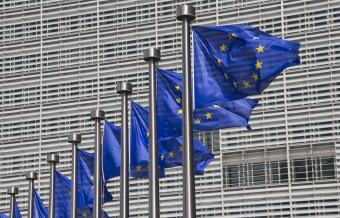European Union
Recent Activity
This report, the product of two workshops held on border management in Belgium and Texas, addresses three arenas of significant change shared by the United States and the European Union: 1) new government organizations for controlling borders; 2) the use of information technology to secure borders; and 3) visa‐free travel policies.
This policy brief outlines the causes of educational disadvantage among young children of immigrants and explores strategies for improving their educational and socioeconomic outlook.
This policy brief examines the social mobility prospects of the children of Turkish immigrants across five EU nations—Austria, Belgium, France, Germany, and the Netherlands—and seeks to identify institutional arrangements that promote their academic success and transition into the labor market.
This report examines the ways in which governments can make the emerging global mobility system work better for European migrant-receiving countries, their developing-country partners, and the migrants themselves.
With reforms to its 2005 immigrant integration law and the unveiling of a National Integration Plan, Germany expects to improve integration and come closer to the European Union's Common Basic Principles on immigrant integration. MPI's Eric Leise reports.
This report seeks to untangle the economic consequences of immigration from the intricate web of influences that affect the labor market by examining the role of various non-immigration factors in determining labor supply and demand.
Although most Latin Americans head to North America, the increasing flow of people from Latin America to Southern Europe reflects colonial and historical patterns as well as new economic opportunities. Beatriz Padilla and João Peixoto examine various data that show the region's popularity.
Vlaams Belang, a far-right party known for its nationalism and anti-immigrant position, lost one seat in Belgium's parliament in the June 10 national elections. Laura Barker examines the party's use of the immigration issue and reactions to its politics.









One Phase Closes for the New Pact on Migration and Asylum. Now Another Begins
The New Pact on Migration and Asylum agreed in December 2023 by EU Member States and the European Parliament after lengthy negotiation will, without a doubt, go down in history as a signal political accomplishment. But will it result in better management of migration and asylum systems in a complex era? The outcome will turn on implementation and communication, this MPI Europe commentary explains.